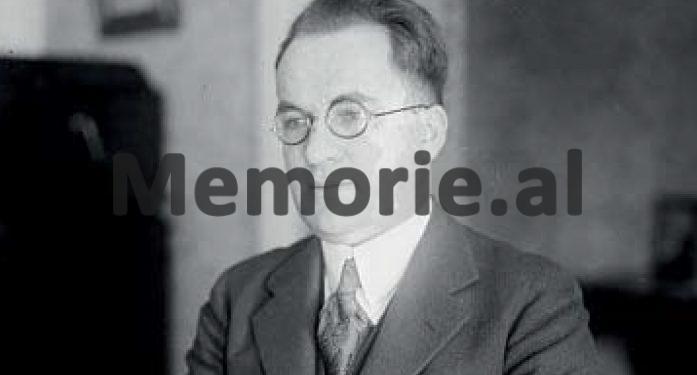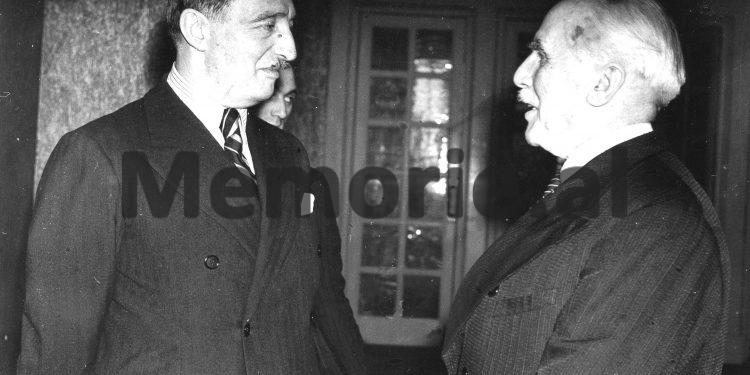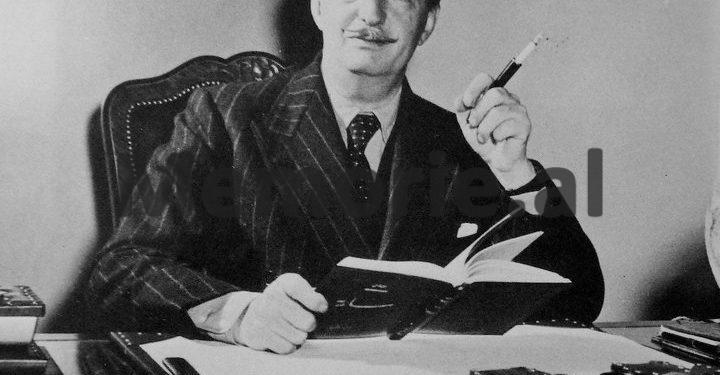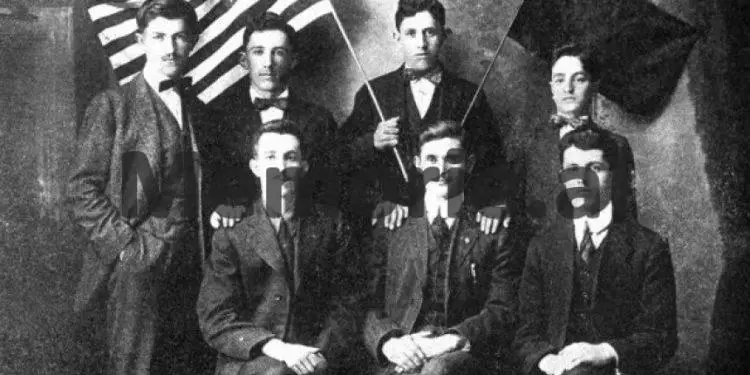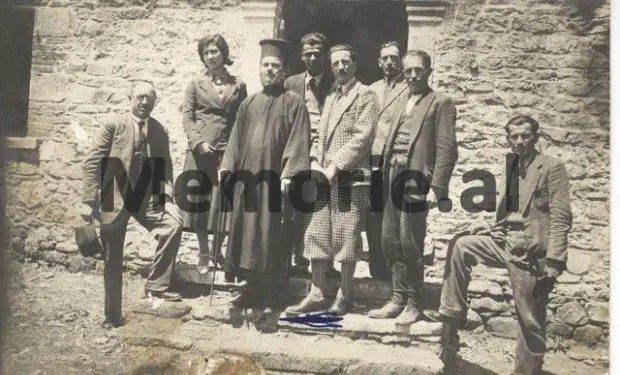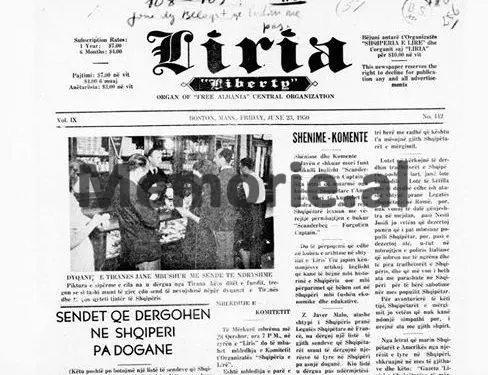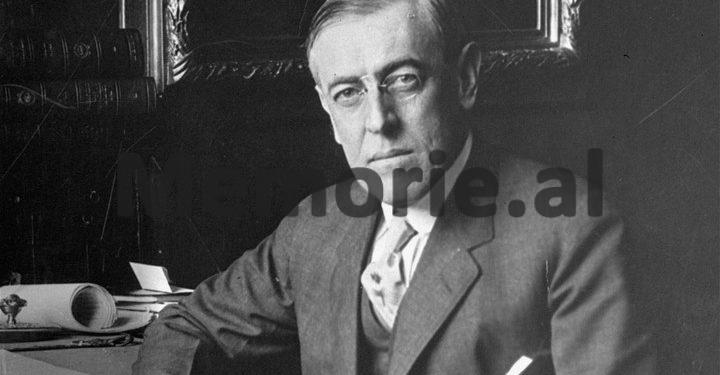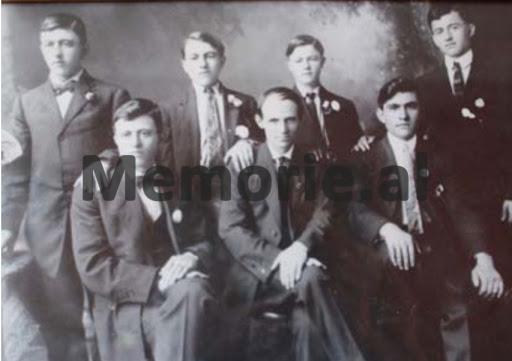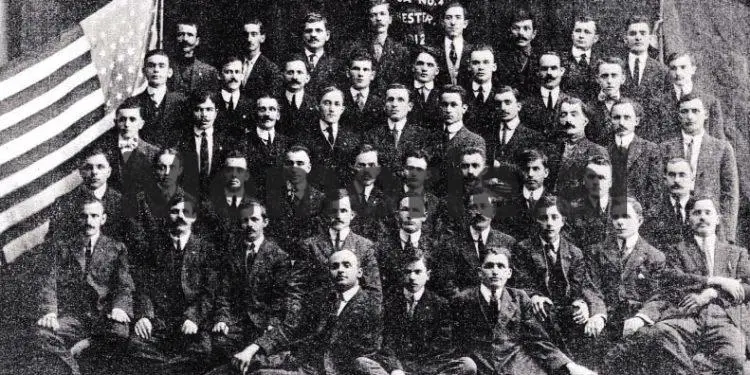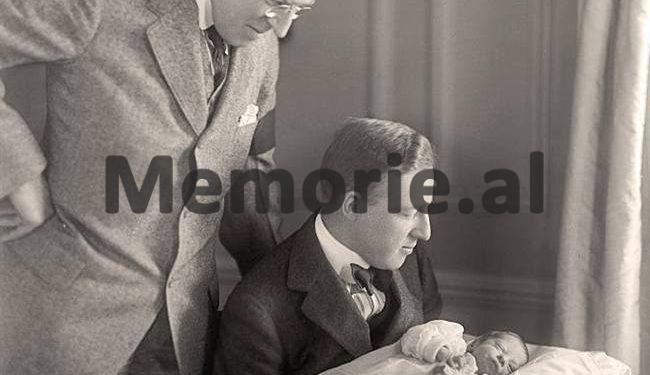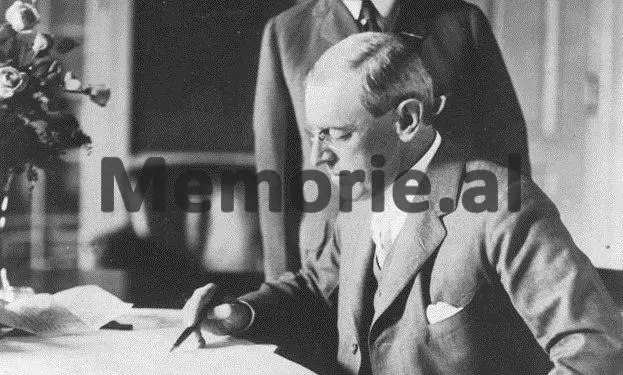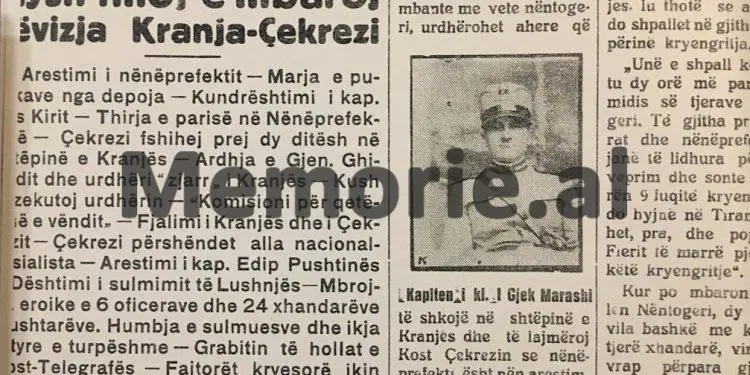Dashnor Kaloçi
Memorie.al publishes the unknown story of Kosta Çekrez, who after spending a whole life between vicissitudes and endless suffering, which, among other things, brought him to be away from his homeland and relatives there at home and abroad, from where he had left since 1935, when he had attempted and failed in his attempt to lead an armed uprising against King Zog, in addition to political activity for the benefit of the Albanian cause to which he had been devoted for years, there from 1951, he decided to return once again to his first passion, journalism and journalism. A profession he had practiced for more than three decades. Even running two or three of the most popular Albanian newspapers of those years and its diaspora in the US, where unlike many of his colleagues who had compromised with the regime, he had struggled and fought for the right to speak and to remove the heavy “handcuffs” from her. Locked up in his apartment which was not more than three miles away from the White House, he finished writing the book “The Third Plan of the Fragmentation of Albania”, where he analyzed all the events, vicissitudes, many dangers and the invasions that Albania had gone through since the “establishment” of the first Albanian state in November 1912, where in many of those events, if not the protagonist, he had been an eyewitness himself.
After spending a whole life in the midst of endless vicissitudes and sufferings that, among other things, brought him to be far from the homeland of relatives there at home and abroad, from where he had left since 1935, when he had tried and failed in his attempt to lead an armed uprising against King Zog, in addition to political activity for the benefit of the Albanian cause to which he had been devoted for years, in 1951, he decided to return once again to passion. His first, journalism and journalism. A profession he had practiced for more than three decades in his youth. Even running two or three of the most popular Albanian newspapers of those years and its diaspora in the US, where unlike many of his colleagues who had compromised with the regime, he had struggled and fought for the right to speak and to remove the heavy “handcuffs” from her. Locked up in his apartment which was not more than three miles away from the White House, he finished writing the book “The Third Plan of the Fragmentation of Albania”, where he analyzed all the events, vicissitudes, many dangers and the invasions that Albania had gone through since the “establishment” of the first Albanian state in November 1912, where in many of those events, if not the protagonist, he himself had been an eyewitness. Given the fact that in that book, which is almost unknown to Albanians, are treated, elaborated and analyzed in detail some of the most critical events and situations that Albania has gone through during the last century; we have selected for publication some parts of that book, giving them without any change from the original version used by their author.
Excerpts from Kostë Cekrez’s book, “The third plan for the partition of Albania”.
During its centuries-old life, Albania has gone through a series of critical periods. But she has gone through the greatest crises, in our eyes, especially in the last forty years (this article was published in 1951, our note), of her almost semi-independent life. There have been three crises that have affected its existence: 1912, 1919, and 1939. The first two were overcome with more or less success, if we take into account that from the threat of its extinction it all came out again and again a kind of soy the state, though with large prosperous provinces left out. Thus, in 1912, two or three months after the triumphant recognition of the autonomy of Albania with four vilayets by Turkey, the Balkan allies (Bulgaria, Greece, Montenegro-Serbia) decided to divide it completely. Everyone knows how that First Fragmentation Plan was canceled. But it is coincidental to mention that, although Austria was the one who took the initiative to save half of Albania from the clutches of its neighbors, it was England that through its Minister of Foreign Affairs, Sir Edward Gray, found and imposed the formula of the establishment and recognition of the First Independent Albania. But three years later, (April 1915), in the same cities where Albania’s independence was internationally recognized, a new treaty was signed, the famous Secret Treaty of London. This treaty divided Albania for the second time in favor of Greece, Italy, Montenegro and Serbia, by decision of the four Great Powers (England, France, Italy and Russia), which had guaranteed the independence and neutrality of the State. Albanian and on January 20, 1920, the Peace Conference convened in Paris took the final decision to implement the provisions of the Secret Treaty of London.
US President Wilson saves Albania
As it is known, this time the salvation of Albania came from the intervention of President Wilson, of the United States, who had declared a ruthless war on all secret treaties and agreements. But when it came to rescuing Albania from the Second Partition Plan, Woodrow Wilson was not content to denounce the Secret Treaty of London. On the contrary, he undertook to defend Albania and its independence on the basis of the Principle of Nations. At the same time (January 1920) that President Wilson took the side of Albania in the three famous Adriatic Notes, a Congress composed of the most famous patriots of that time was wrapped in Lushnje. Although he had no knowledge – I was assured of this by the late Qazim Koculi, one of the most vigilant members of the meeting – of President Wilson’s stance and statements, the Lushnja Congress took a series of decisions that agreed point by point with the principles of the President of the States United. But how much value would those congressional decisions have left without Woodrow Wilson’s dramatic intervention is an issue that has no room for discussion in this short work. The fact is that Albania successfully overcame the crisis that seemed insurmountable to us in December 1919. Albanians have been in the habit and this is a psychological factor – to curse the Great Powers for their intrigues and infidelities, and to weave in insults against their “bloodthirsty” and “bloodthirsty” neighbors, because they have tried to exterminate the Arbnore race with their satanic plans. But Albanians forget that every nation has within itself in its body the worm of its own sickness and death. Therefore, they may not like the fact that they themselves or their leaders give cause to strangers and neighbors to take advantage of the quarrels and disputes of a divided nation. For example, how many were those who wanted and were ready to fight for an independent Albania in 1912, and how many were opposed to that idea? Also, during the crisis of 1912, Albanians may have forgotten that he was a leader of their own race, Esat pasha Toptani, who not only caused the defeat and failure of the first Albania, but was also in favor of the application. Of the Secret Treaty of London, with the conditions that he should remain the lord of Central Albania. “Ah, yes he was a traitor”, many voices will protest. But who made that Albanian father and mother son a traitor? The truth is that there is no nation that has not produced traitors at one time or another. But among other nations the traitors are covered by the vast majority, who are always ready to defend the State and its national institutions.
The third crisis of the partition of Albania in 1939
Unfortunately, it seems that in Albania the traitors are the masters of taking the majority with them or at least it seems that they have the majority with them in order to prove that the majority is opening the grave with their own hands. It was under these conditions that the third crisis in 1939 broke out during Zog’s rule. That crisis, which continues to this day, ended in the formulation of the Third Plan of Partition. For the second time in 25 years, it was again the British government that took the initiative to prune Albania’s body through a pledge given to the King of Greece that the provinces of Korça and Gjirokastra would be recognized as part of the Hellenic kingdom at the end of the War of the Second World War which was said to be done for freedom and justice. The exact form and words of this promise are not known, because the whole agreement had to be kept completely secret, for fear of reprimanding international opinion and especially the opinion of America and President Roosevelt. But the Greeks could not stand it and so they announced their demands since 1941, exactly when Greece was occupied by the Germans and Albania by the Italians. The steps that brought the work to that point are part of the drama or rather the great tragedy that was played at the expense of Albania in the last period of the Zogist regime, as will be explained in the following chapter.
Zogist, Fascist, and Communist Regimes
In every tragedy or drama, usually three main actors are imagined: a “hero”, a “heroine” and a “hor”. The first tries to save the heroine from the tricks of fate or from the vile intrigues of the horror that tries to increase her risk. For example, in the famous drama “Othello” by William Shakespeare, translated into Albanian by Fan S. Noli, the black general of Venice is the hero, the beautiful Desdemone the heroine and the famous Jago, tears the role of horror. But in the living tragedy of Albania that found its climax on the day of Black Friday, April 7, 1939, search as much as you want to find out who is a hero and who is a hor. For a moment it seemed as if Zogu was going to play the role of the hero, but in the end he also ran to save his head and the boxes of gold he took, leaving the heroine at the mercy of the hours. In order to clearly understand the role played by each, it is necessary to explain the cases in which the conspiracy against the independence of Albania took shape. That Zog’s regime would end violently he knew big and small; for a regime based on force cannot be overthrown on the basis of force alone. In the case of this regime the force came not so much from within, but from without, i.e. Fascist Italy which gave way to keep Zog in power by any means at its disposal. In fact, within the first ten years of the Zogist regime, four insurgent movements had taken place. To deal with these internal explosions, Zogu could not devise any other way but to go deeper and deeper into Mussolini’s defense, so that any internal movement ended with a new treaty or a secret agreement between Tirana and Rome in a such a degree that the independence of Albania managed to remain only as a word, a theory, a shadow, and not a reality.
Zog’s policy, vassal of the Italian one
Thus in the field of foreign policy, the Zog regime took such an attitude that it could only aggravate and enmity the Western Powers, big and small. For example, the Albanian delegation to the League of Nations was instructed to vote in turn as the Duchess’s delegation voted, and in a number of cases Italy remained in the minority with its own vote and that of Zog’s delegation. Even at the critical point of the brutal invasion of Ethiopia by fascist forces, Zogu’s delegation voted in favor of Italy each time, surprisingly not taking into account that Italy’s aggression in that case set a sure precedent for Albania’s future violation. By the black-shirted legions, as happened only four years after the conflict over Ethiopia. A man like Zogu who is thought to be smart should have understood that danger for himself, if not for Albania. When I met him in Paris in August 1939, I touched on this point in the conversation, and I was not at all surprised when Zogu told me that he had turned to the Western Powers to ask for their help against the military preparations that Italy was making for the day of April 7, but that they made the ear deaf. On the other hand, in the square of domestic politics, only the fascists and sympathizers of Italy had their voices heard and the word went to the affairs of the State. Anyone who dared to criticize Fascism – even if only as a theory – was considered an enemy of the Zogist regime and in most cases branded a “communist” to please the Duchess, of course after Mussolini pursued those who opposed him as communists his regime.
Preface to the book “The third plan for the partition of Albania”
During the years of his stay in the USA, Kostë Cekrezi had an intense publicist and political activity for the benefit of the Albanian cause. Among other things, he himself informs us in the preface of the book “The third plan of the partition of Albania”, where among other things he writes: “When these lines are coming to light, it has been six years since I was forced. To leave “FREE ALBANIA” (it is about the Committee “Free Albania”, our note), and almost any interference in the Albanian issue. Nevertheless, during this time I have kept my finger on the vein of the Albanian movement from the heart of the capital of the United States of America – the village where I live is only three miles from the White House; I kept correspondence with a close circle of friends; I met and talked with the delegates of the Tirana government at the United Nations; I have published several articles on our issue in American newspapers; and on two occasions I published and distributed two circulars on 15 May 1947 and 1 June 1950. According to my journalism duties, in the first place of which I served for more than 30 years, I sent the English articles and two circulars to you for notice and comment. The editorial offices of “DIELLIT” which I made daily in 1915 – and of “LIRIS” which I raised from the cradle since 1941. But neither of these two newspapers had the generosity to even mention that they received those articles, or circulars in words. And it is probably true that these two notebooks – which they say represent the opinion of the Albanians of America – do not accept any publication that could undermine the monopoly established by their organizations. Where is the time when I accepted for publication the harshest criticism and the fiercest attacks against myself in the pillars of “LIRIS” …?! Meanwhile a bunch of kind friends advised me to publish a third newspaper here in America; and many have pushed me to set up a third organization. But my experience has convinced me, that in this county here cannot be held more than one newspaper or one organization. On the other hand, and in response to the wishes of these patriots, two more newspapers were added to the city of New York, as a publishing center. In addition to these, they give and receive a pile of flyers that leave the center and non-existent offices irregularly, in addition to a number of newsletters that follow us from time to time from distant places like Australia, Argentina and Canada. The publication of so many organs with opposite tendencies is an undoubted symptom of the severe illness from which the whole Albanian issue suffers. For all these reasons, I came to the conclusion that the time had come to raise my voice once again in defense of the Common Homeland with the publication of this book. I hope and pray to the great God that this publication comes out on top of the purpose for which it is coming to light: to show the true state of the Albanian issue “.
Lyon Villgas, Virginia, August 1951. Costa A. Çekrezi
Çekrezi, the well-known publicist and politician who fled Albania in 1935, after organizing the Fier Uprising Kostë Cekrezi was born in 1893 in the village of Ziçisht in the district of Korça, where his family comes from, while his publicist and political activity originated in the second ten years of the last century, when he was an immigrant in the US and studied and graduated from the famous Harvard University. During that time he was closely associated with the “Vatra” Association of Albanians of America, where he was entrusted with the management of the newspaper “Dielli” as its editor-in-chief. In 1920, he returned to Albania with many other members of the Vatra Society, who responded to the call “homeland in danger” made by the government of Prime Minister Sulejman Delvina, who left the Lushnja Congress. To take part in the War of Vlora, against the Italians. After the Lushnja Congress, Çekrezi again devoted himself to journalism, being one of the prominent pens of those years, especially in terms of press freedom. From 1926 to 1928, he directed the newspaper “Telegraf” and from 1929 to 1932, the newspaper “Ora”. In 1931, Kostë Çekrezi was arrested by the Zog regime, being accused of being one of the main organizers of the Vlora Movement, which aimed to overthrow King Zog. After his release from prison, he continued to deal with journalism, writing a series of articles in the press of the time. In 1935, Kostë Çekrezi escaped from Albania and fled to Italy, as he and the commander of the Fier gendarmerie, Lieutenant Musa Kranjen, were two of the main leaders of the Fier Uprising, which aimed to overthrow King Zog. At the moment of the outbreak of the uprising, Çekrezi and Kranje escaped arrest after being taken by the Italians and left for Italy on a motorboat. After staying for some time in concentration camps in France, in 1942, Çekrezi immigrated to the United States, where he continued to deal with journalism and politics, engaging entirely in the problems of the Albanian cause. He died in Virginia, USA in 1959, at the age of 67./Memorie.al
Continues tomorrow




